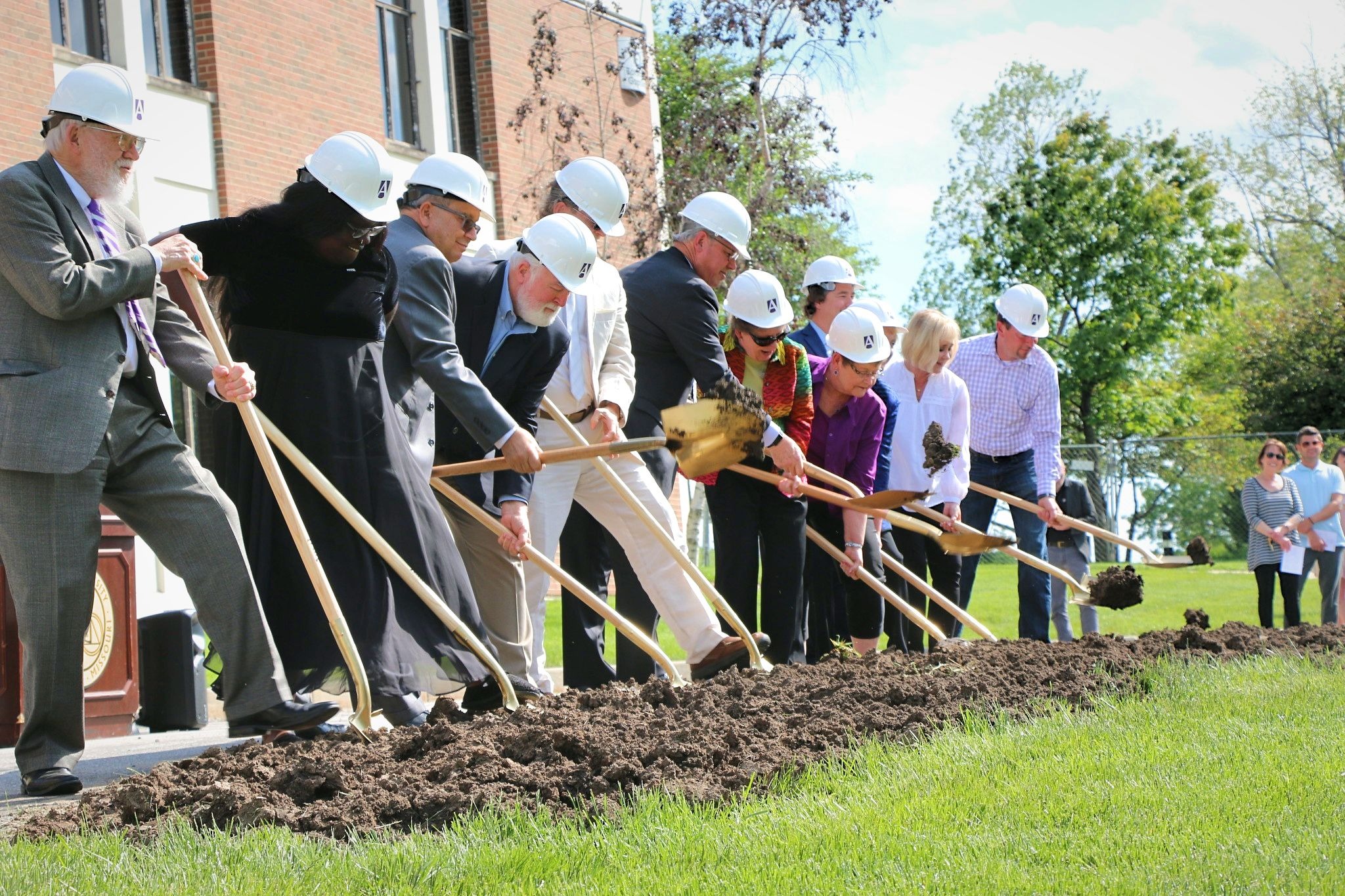(November 16, 2017) Washington, D.C. – Avila University has joined with leaders of 161 Catholic communities in every state of the nation, in issuing a letter to President Trump and the U.S. Congress in support of climate change science, funding and international policy negotiations. The letter was organized by Catholic Climate Covenant and signed by Catholic colleges and universities, religious congregations, national organizations, and health care providers.
“This letter demonstrates a broad, unified Catholic desire for American leadership on climate change” said Most Rev. Richard Pates, Bishop of Des Moines and United States Conference of Catholic Bishops (USCCB)-appointed Liaison to Catholic Climate Covenant. “Catholic concern for climate change as a moral issue goes back to Pope John Paul II. Faithful to the Church’s consistent teaching, Catholics in the United States will tirelessly urge our elected leaders to address one of the most pressing modern issues.”
In the letter, Catholic leaders outline the Church’s longstanding commitment to care for creation and reiterate the U.S. bishops’ counsel to act on widely-accepted climate change science. The leaders then collectively urge President Trump and members of the U.S. Congress to take three specific actions:
- Fund the United Nations Framework Convention on Climate Change (UNFCCC) and the Intergovernmental Panel on Climate Change (IPCC);
- Meaningfully participate in the deliberations of the UNFCCC; and
- Honor U.S. Commitments to the Green Climate Fund
In signing onto the letter, Fred P. Pestello, Ph.D., President of Saint Louis University, said: “The issue of climate change should be as much of an institution-wide responsibility as living our mission. Answering Pope Francis’s compelling call in Laudato Si’ to be better stewards of creation is more than a papal request. It is a requisite response to living our Catholic values. Humanity must reconcile the ways in which we have not upheld the dignity of creation. Saint Louis University is compelled to solidarity in this journey. Many of the students studying at Catholic universities have been at the forefront of this endeavor, increasingly aware of their responsibility as co-creators. And the talented scientists at our universities have convincingly made the empirical case for substantial action, as well as the urgency of this critical challenge.”
Teresa Maya, CCVI, President of the Leadership Conference of Women Religious, said: “Women religious are keenly aware of the threat climate change poses to God’s creation, especially to those who are most vulnerable. We believe that we are called to live in right relationship with all of creation and we know that each of us has a responsibility to cooperate with God to protect our common home. We call on President Trump, members of Congress, and all Americans to work together to address the existential threat of climate change.”
James F. Ennis, Executive Director of Catholic Rural Life, said: “Working with farmers and ranchers across the US, Catholic Rural Life has seen and heard the challenges facing agriculture due to the changing climate in many regions. Men and women and families living in rural communities, many of whom make their living off of the land or sea, are extremely concerned and vulnerable to changes in climate. That is why Catholic Rural Life is joining other Catholic organizations to urge President Trump and Congress to reassert U.S. leadership in the global effort to address climate change.”
For more information: jose@catholicclimatecovenant.org; 202-756-5545; http://www.catholicclimatecovenant.org.
Catholic Climate Covenant inspires and equips Catholic people and communities to care for creation and care for the poor. Through our seventeen national partners, we guide the U.S. Church’s response to climate change by educating, giving public witness and offering resources.
Avila University, a Catholic University sponsored by the Sisters of St. Joseph of Carondelet, is a values-based community of learning providing liberal arts, professional, undergraduate and graduate education to prepare students for responsible, lifelong contributions to the global community. Our approach to education brings out the best in our students, so they can bring out the best in others.

